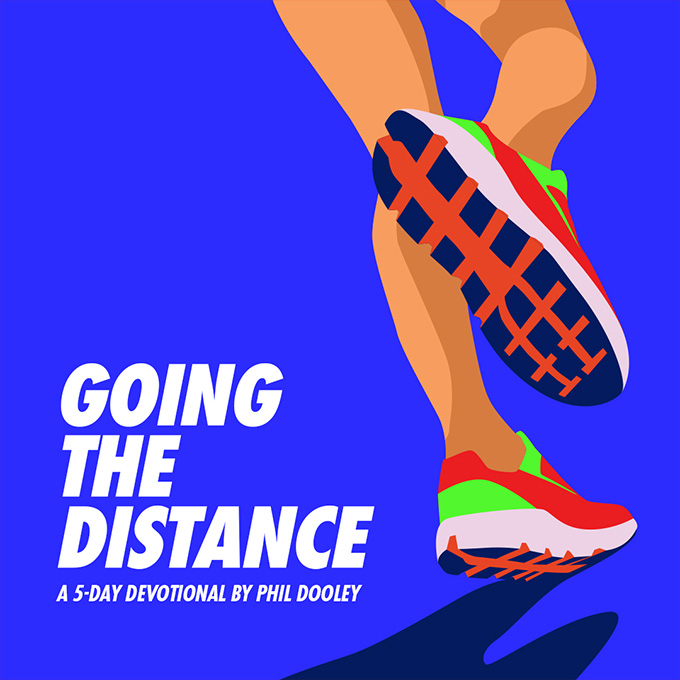I’ve been thinking about how we deal with the pain in our lives. Both my parents passed away in the last three years. And in 2020 we also buried my father-in-law Douglas Wylie, affectionately known as the ‘Irish General’, who moved countries at the age of eighty to help me and my wife Lucinda plant Hillsong Church in South Africa. (Doug loved to tell me what to preach about, his standard suggestion being the End Times.)
The truth is God doesn’t guarantee a pain-free existence for any of us. Jesus says: ‘Here on earth you will have many trials and sorrows.’ (John 16:33 NLT). Pain is an inevitable part of life and there are many different sources of it. We can be wounded or ill-treated by others. We can suffer violence, abuse, neglect, or lack in the families we grow up in, or prejudice, injustice, and discrimination in the world we live in. Sometimes our pain can be self-inflicted. There’s also the pain of loss, which we’ve all been confronted with in a much greater way during this pandemic.
Growing up, I was no stranger to physical pain. It was the outcome of many exploits and adventures – attempted stunts on my BMX bike, games with my two younger brothers that regressed into no-holds-barred fights, jumps off high places, Youth Ministry manoeuvres gone wrong, you name it.
But my first encounter with real, emotional pain was on the day my dad called me and my brothers together to tell us our mum was going to hospital (not an average hospital, but a private mental health hospital in Sydney) to get better. We didn’t understand what that meant. Mum didn’t look sick. Dad couldn’t really explain what was wrong with Mum either, because I don’t think he knew exactly. Mental health issues were a taboo subject in those days. Very simply put, Mum battled with feelings of depression and struggled to cope with the challenges of everyday life.
As a teenage boy, I struggled to make sense of the situation, and yet I experienced all the pain associated with it, and I didn’t know who to talk to about it, or how to make the pain stop. I felt bad for my mum. I felt bad for my dad. My own personal pain was tinged with shame because no one else had a mum who needed to go into hospital for mental illness. (I’m sure there were other kids who faced similar challenges, but it felt like I was the only one.)
Hurting was a lonely experience. My brothers and I avoided talking (or even thinking) about Mum’s condition because it just stirred up more pain for us. We tried to distract ourselves with whatever we could find – sports, Lego, our BMX bikes, anything to take our minds off that part of our lives for which we didn’t have answers anyway.
Sadly, there’s no happy ending to this story. Mum tried everything to get well – medical, psychological, and spiritual help. Mum and Dad were faithful followers of Jesus. Our whole family went to church every Sunday. People prayed for Mum, and she still didn’t get better. My dad did all he could. He stayed with her, when it would have been easier for him to leave, and he kept on loving Mum and looking after her (and looking after us boys, too). As a family, we had to live with the pain of Mum’s situation and the effect it had on all of us.
The pain still lingers for me, which brings me to my first point:
1. Some pain never goes away completely, but it doesn’t have to control us either.
The Apostle Paul had a source of pain, which he describes as a thorn in his flesh (in 2 Corinthians 12:7). We don’t know what it was, but Paul writes about the experience in 2 Corinthians 12:8–9 (TPT): ‘Three times I pleaded with the Lord to relieve me of this. But He answered me, “My grace is always more than enough for you, and My power finds its full expression through your weakness.”’ Paul’s pain reminded him to remain close to the Lord, to lean on and rely on Him.
When we seek God in our pain, He shows up with goodness, mercy, and unfailing love, and we get to know Him in a more intimate way than ever before. The pain of my parents’ story remains with me. With God’s grace, however, I’ve reached a place where it doesn’t control me or my behaviours. In the process, I’ve learnt to lean on and rely on God in a greater way and that’s helped me in other areas of life.
2. What we do with our pain determines the kind of people we become.
Pain is an incredibly powerful force. It shapes us and it shapes our lives, for better or worse. How we deal with our pain determines our ability to move forwards in life.
If we’re not careful, pain can drive us to many unhealthy places and behaviours – anger, anxiety, despair; a disproportionate need to prove ourselves; addictions to alcohol, drugs, pornography; other avenues of escapism, like overusing social media or bingeing on Netflix; even abusive patterns – all geared to suppress our pain, and to keep us from dealing with the root cause of it.
The reality is pain will come out one way or another. What we need are healthy outlets for pain. It’s helped me to talk to people I trust, who don’t judge me, who simply listen, and, by listening, show that they genuinely love me and care for me. (I love this quote by writer David Augsberger: ‘Being heard is so close to being loved that, for the average person, they are almost indistinguishable.’)
I encourage you to find those trustworthy people in your world, or to ask God to bring the right people alongside you. Speaking honestly and vulnerably about pain is a big step towards the ultimate goals of wholeness and wellbeing. It’s vital for us to support each other, pray (and laugh) together, and remind one another, ‘You will get through this.’
3. Bring your entire burden to Jesus.
I don’t think it’s possible for anyone to fully comprehend the depths of another person’s pain. It’s ultimately only in Jesus that we have someone who completely understands everything we go through and carry with us. ‘No one can measure the depths of His understanding.’ (Isaiah 40:28 NLT). And Jesus invites us to come to Him. ‘Are you weary, carrying a heavy burden?’ He asks (in Matthew 11:28 TPT). ‘Then come to me. I will refresh your life …’
You probably know the old hymn (by Joseph Scriven) ‘What a Friend We have in Jesus’. (My dad loved this hymn!) In the first verse, it says: ‘O what peace we often forfeit, O what needless pain we bear, all because we do not carry everything to God in prayer.’
We do have a Friend in Jesus, and a Counsellor and Comforter in the Holy Spirit (see John 14:26). I encourage you, go sit with the Lord today and open up to Him, whether you do so in prayer, by journaling (which I like to do), or by pouring out your heart in conversation with Him (as David writes about in Psalms 62:8). Don’t put it off any longer. He is waiting for you to come to Him. In fact, let’s do what it says in Hebrews 4:16 (MSG): ‘let’s walk right up to Him and get what He is so ready to give. Take the mercy, accept the help.’

